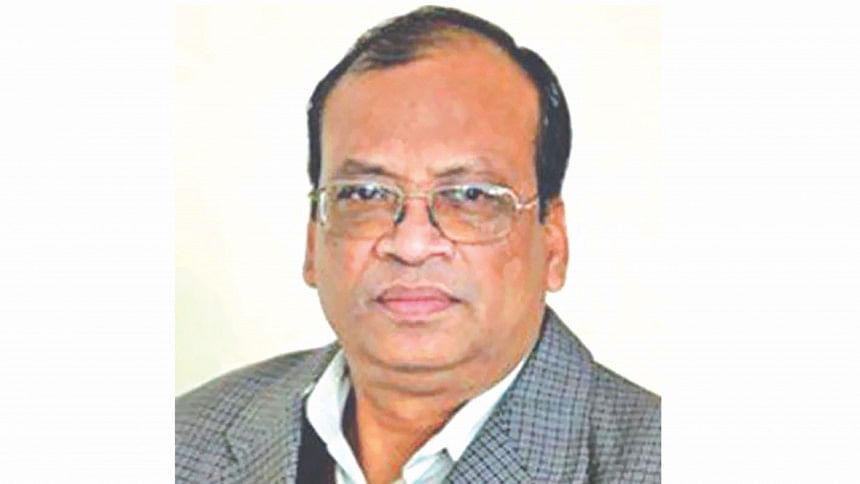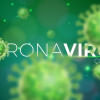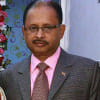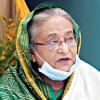Coronavirus awareness: Dr ABM Abdullah assesses situation, who’s at risk and what to do

Acclaimed medicine specialist and Prime Minister Sheikh Hasina's personal physician Dr ABM Abdullah spoke to The Daily Star about the coronavirus outbreak, what is being done, who is at risk and what are the ways of dealing with the situation.
"Day by day the situation is changing. We are no longer in the same state we were a month ago. The number of infected is rising gradually. So far, we have come to know about 24 confirmed cases*," he told The Daily Star.
"First of all, one cannot be treated unless the person tests positive for the virus. The symptoms of this disease are mainly cold and cough. Initially, only those who returned from abroad, especially from virus-affected countries, are being tested for coronavirus, if they show the symptoms."
"Those who test positive for the virus are then admitted to specific hospitals prepared by the government for treatment," Dr Abdullah said.
"Family members of Covid-19 patients, neighbours or people in the vicinity, and those who have met a patient, are at high risk of also being infected. If this is the case and then someone shows symptoms [after meeting an affected person] including cold, cough and fever, then they must inform the Institute of Epidemiology, Disease Control and Research [IEDCR] through its hotline immediately."
"No one needs to come to Dhaka or go to the IEDCR. After they contact IEDCR over phone, the institute will send its representatives to collect samples from the person maintaining necessary precautions and bring the samples to the IEDCR for tests. If they test positive, then they would be admitted to hospital for treatment," he said.
"For example, let's say someone in Jashore shows symptoms of coronavirus infection. Now, if he is really infected, he would end up spreading the virus to many others if he comes to Dhaka from Jashore using bus or train. Therefore, everyone is advised to stay home in these cases and inform the IEDCR hotline numbers…."
"The same rule is applicable for airports, land ports or river and sea ports. Anyone being asked to be in quarantine means they are a possible carrier of the virus. The virus may initially stay dormant during incubation period without showing symptoms. And it is possible that a person is carrying the virus without even knowing it. It cannot be tested immediately."
"Hence they are asked to stay in quarantine, meaning the person should stay at home during a certain specified period; 14 days in case of Covid-19. During these 14 days, the person must not travel anywhere, maintain safe distance from family members, and must not roam around here and there. Within 14 days, if the person shows any symptom, then they must inform the IEDCR in this regard. One must take this into account that they may spread the virus even while going home from the airport."
"Without testing, there is no way to know for sure who is carrying the virus. It is important that doctors, nurses and health professionals are provided with personal protective equipment [PPE]. Without PPE, doctors and nurses are scared to go near persons who show symptoms like cold or cough. It is obvious that they would be scared, and in this circumstance the doctors will not be able to provide treatment to the patients. The same is applicable for the nurses and others in the medical teams, such as ward boys or other staffers … everyone needs protection at the end of the day."
The doctor also said, "We need to ensure two things. Doctors' safety must be ensured, and therefore they must be provided PPE so that they may provide treatment. I am not sure whether we need to bring doctors from abroad for treatment, but yes doctors here need training. They are being trained and it has to continue. We have to prepare for the worst in case the situation ends up becoming an alarming one."
"People should maintain hygiene rules regarding cold, cough or other symptoms. One should not spit here and there and should use a tissue paper or handkerchief while coughing, and wash hands often using soap. One may use hand sanitisers if they want and can afford, otherwise it is enough to wash hands with soap and water. Most importantly, avoid crowded places."
In regards to other measures and those most prone to the infection, he said, "Already the government has taken measures to prevent public gatherings. There is only one advice for everyone -- stay home unless it is absolutely necessary. In particular, those who are aged, and/or have kidney complications or other diseases, or had stroke, are suffering from cardiac diseases, or are cancer patients taking chemo or radio therapies, they are at most risk of being affected by coronavirus. Stay home."
"Secondly, avoid public gatherings such as meetings, rallies, demonstrations, etc. as much as possible. Avoid using public transports such as bus, train and launch unless necessary. Many are talking about suspending prayers in jamaat [public prayers]. Many countries initially lessened the number of Friday prayers. Muslim countries like Saudi Arabia, Kuwait, Qatar, and Malaysia have also advised people to avoid public prayers and instead pray from home… the government must take a decision in this regard," Dr Abdullah said.
"It must be noted that the government has issued some directives in this context already. If anyone has a cold, cough or a fever, then he is directed not to go to mosque for prayer and stay home instead. If he sneezes or coughs in the mosque, then he would spread the virus to many others. We must raise awareness in this regard."
"In short, we must take the right decision after analysing the situation pragmatically. The authorities must also ensure their farsightedness in case of taking decisions regarding a lockdown," he added.
*Three more cases were confirmed after this interview was taken.

 For all latest news, follow The Daily Star's Google News channel.
For all latest news, follow The Daily Star's Google News channel. 








Comments